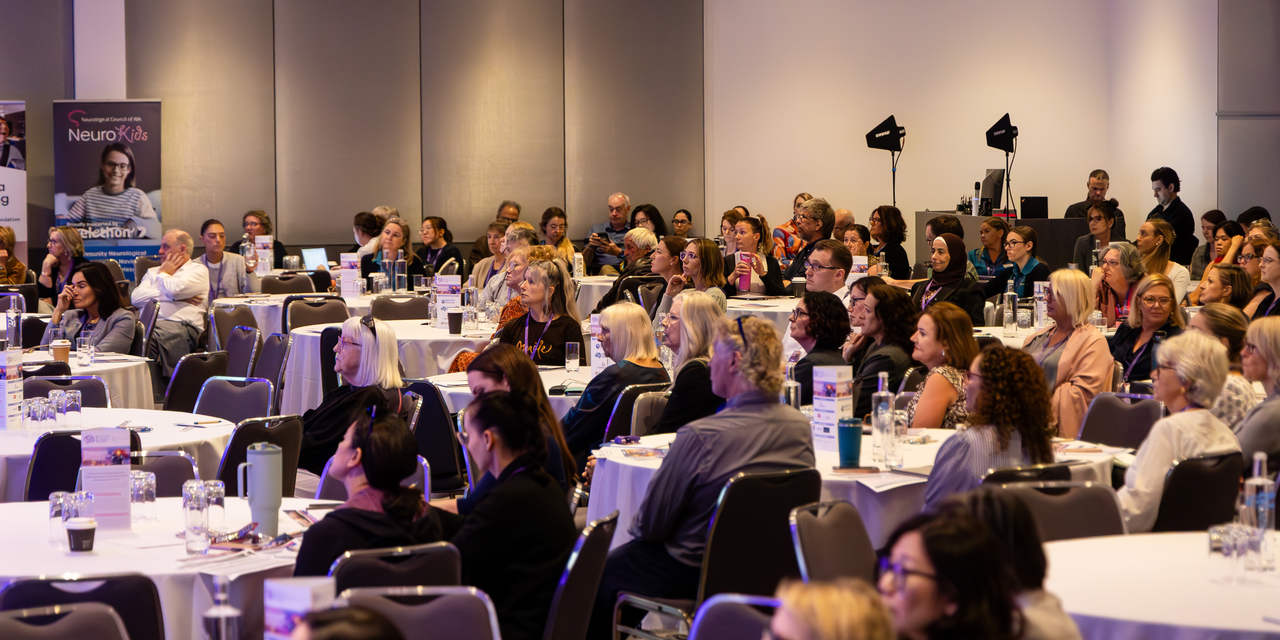May 2, 2025, by NCWA
275 attendees came together in Perth, Western Australia, from the 1st-2nd of May 2025 to share information and insights with delegates across healthcare, disability, aged care, education and justice sectors. With over 40 guest speakers, this event brought together neurologists, clinicians, researchers, policy makers, people with lived experience, carers and representatives from community organisations and peak bodies to promote understanding through cross sector collaboration; and strengthen and enhance neurological health, wellbeing and related health and disability care across our region and beyond.
ANCE day one
This year’s Australasian Neurological Conference and Expo commenced with a compelling Chairman’s Address by Emeritus Professor Charles Watson, representing the Neurological Council of WA. The program continued with a powerful keynote address from Georgina Carr, CEO of the Neurological Alliance UK. Although unable to attend in person or via livestream due to commitments in the UK— Georgina shared a pre-recorded presentation and welcomed follow-up questions via her contact details. As a leading advocate for people with neurological conditions, she serves on numerous NHS and government committees and previously led policy at the MS Society UK. Her address offered valuable insights into neurological developments across the UK and EU.
This was followed by our second keynote, delivered in person by Mr Rohan Greenland, who kindly travelled from the east coast to join us. Rohan is CEO of MS Australia and Chair of the Neurological Alliance Australia. He also serves on the managing committee of the International Progressive MS Alliance and has held senior roles at Palliative Care Australia, the National Heart Foundation, and the Australian Medical Association. With extensive experience in public health advocacy and political engagement, Rohan brought a wealth of expertise to his presentation, Neurological Disease in Australia: Under-counted, Under-valued, Under-funded.
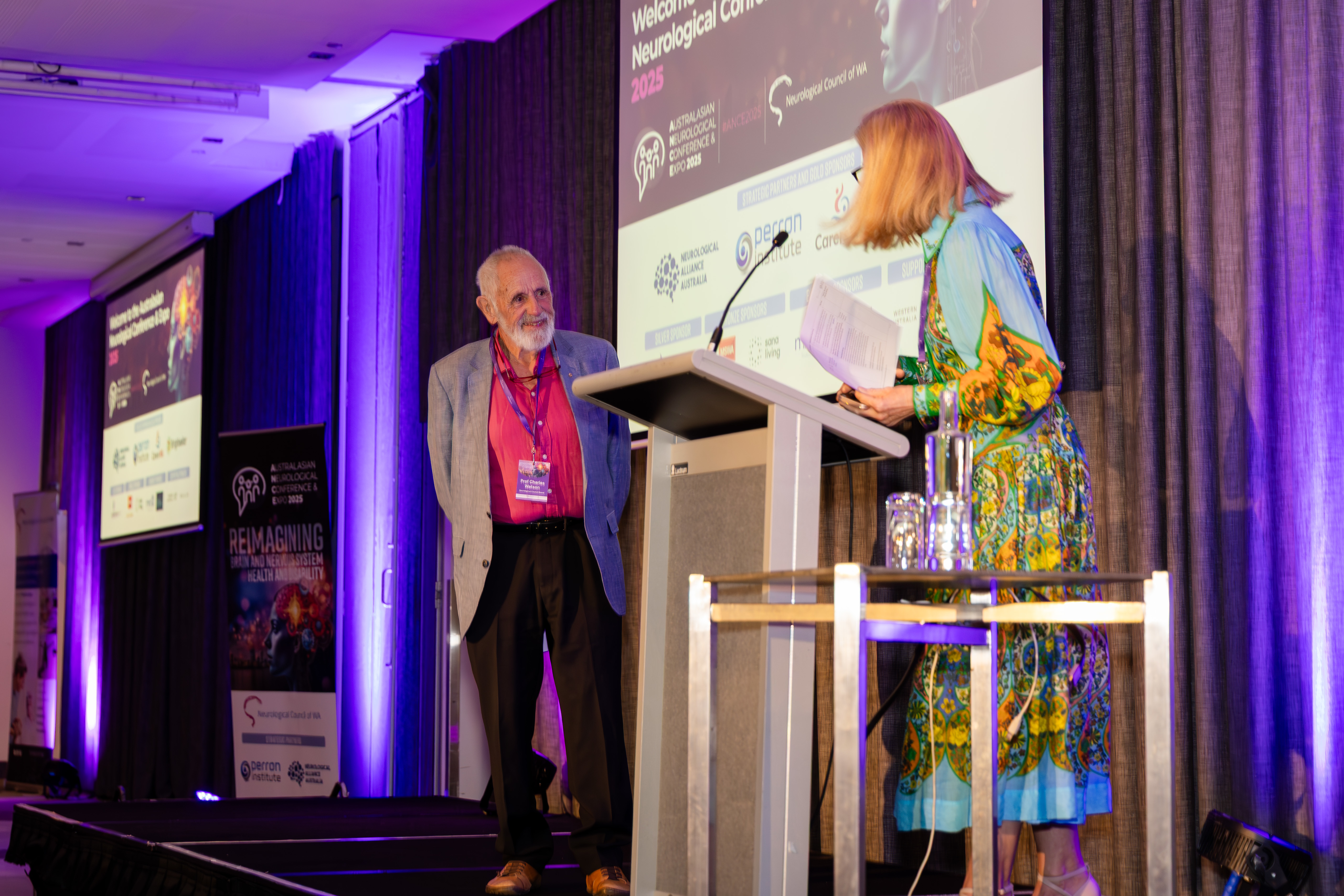
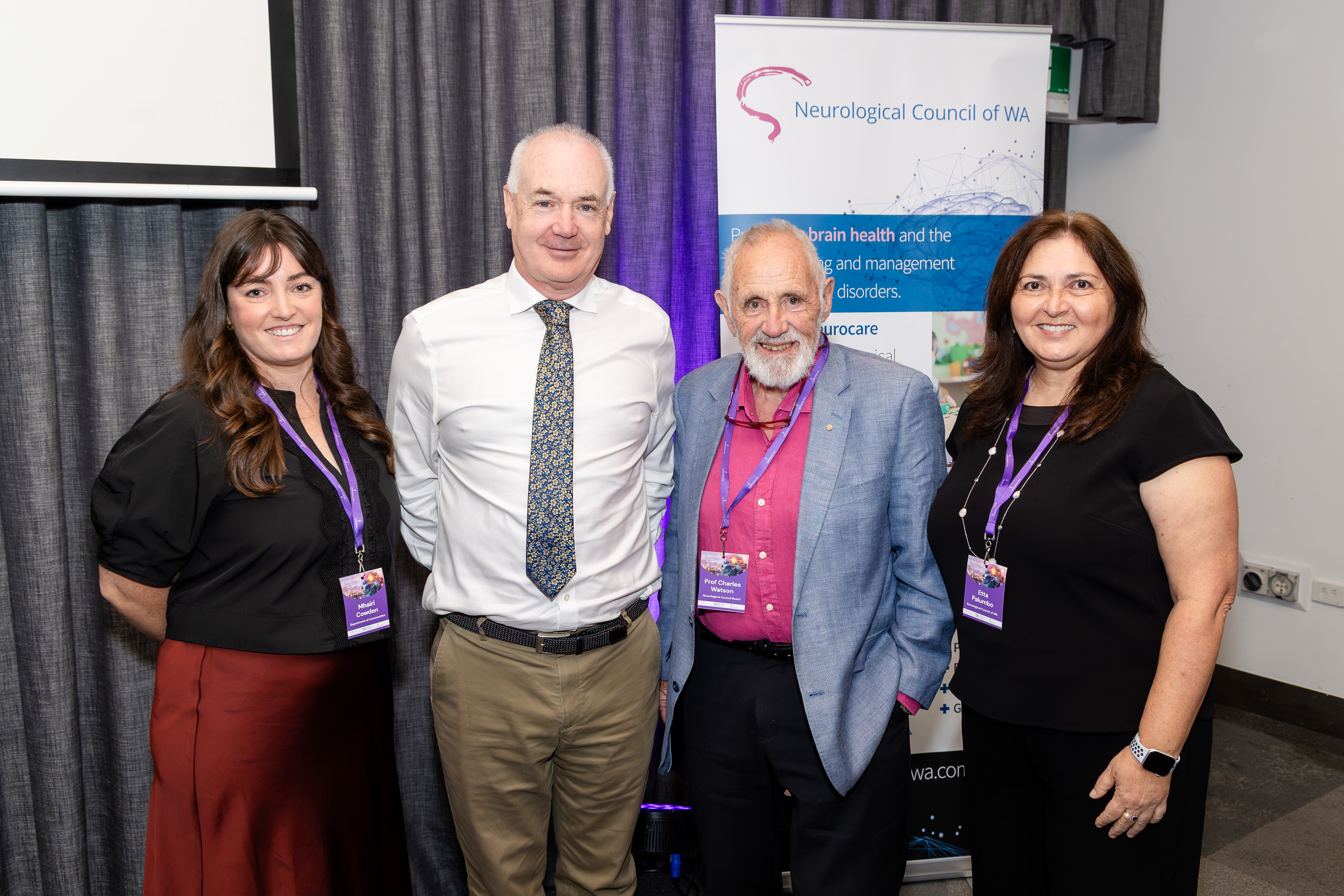
Dr Mhairi Cowden, Deputy Director General Disability for the WA Department of Communities, delivered an impactful presentation on Neurological Disability and the Impact of NDIS Reforms, emphasizing the urgent need to start meaningful conversations about what quality NDIS service delivery should look like in Western Australia. Drawing on over a decade of experience in disability policy design—along with her national leadership in reform—Dr Cowden provided deep insights into the challenges and opportunities presented by the NDIS. Her expertise, shaped by years of work across government, non-profit, and private sectors, brought an informed perspective to the discussion, reinforcing the importance of a person-centred approach that truly supports individuals and their communities.
After breaking for lunch, sessions in the breakout rooms commenced. The panel discussion led by The Perron Institute’s Professor Jennifer Rodger with Dr Aleksandra Miljevic, Mr Brad Roberts and Emma Buitendag was an insightful conversation about the innovative research behind developing personalised mental health treatments for neurological disorders. With mental health being a strong priority for The Perron Institute, the organisation is passionate about leading cutting-edge research into this area, focusing on the complex interactions between neurological disorders and medications to develop targeted, patient-specific care solutions.
In a powerful and personal address titled Disability – Equations for Change, Bruce Langoulant AM reflected on over three decades of advocacy shaped by his daughter Ashleigh’s experience with meningitis. As Chairperson of Meningitis Centre Australia and a leader in both national and international disability and health initiatives, Bruce highlighted the critical role of lived experience in driving systemic change, emphasizing the need for collaborative, community-driven solutions to improve outcomes for people with disability.
Melanie Clark and Monica Cazzoli from Huntington’s Australia delivered a compelling presentation on Facilitators and Barriers to Providing Neurological Care on Country, highlighting the importance of culturally responsive care in the far north of Western Australia. Drawing from their direct experience leading care in remote Aboriginal communities, they offered an eye-opening perspective on the unique challenges individuals face in accessing consistent, specialist neurological support. Monica Cazzoli, has spent over a decade supporting individuals and families impacted by Huntington’s disease. As Team Leader of the national Community Programs team, she brings a deep commitment to improving service access in regional and remote areas. Her work through the specialised HD clinic in Far North WA, particularly with youth and young adults, reflects her passion for collaborative, person-centred care and her dedication to building trust and integrity within Aboriginal communities

Brightwater CEO, Dr Catherine Stoddart, and Janet Wagland, GM Disability Services provided an inspiring overview on Brightwater's approach and journey to developing solutions for people experiencing neuro disability. To wrap up the breakout sessions our CEO Etta Palumbo shared her insights on Nurse-Led and Community-Based Workforce & Peer Support Solutions, drawing on her extensive leadership and advocacy experience with the Department of Justice, Swancare Group, the Alliance for the Prevention of Elder Abuse and the Neurological Council of WA. Her passion for providing equitable access to health and social services drives her work with NCWA, to improve health and wellness outcomes for all Western Australians.
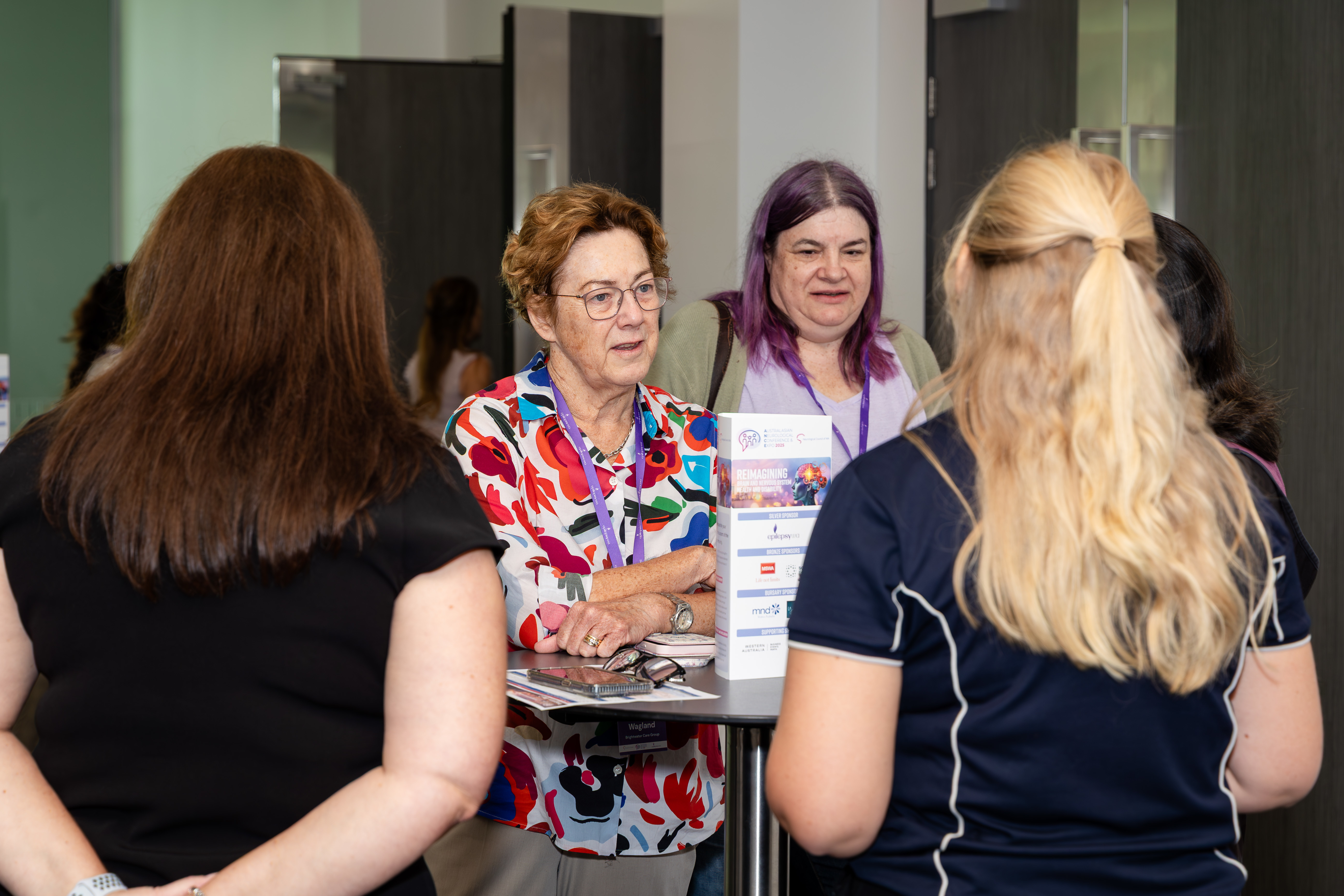
Day one concluded with the ANCE Dinner at the scenic Fraser’s Restaurant in Kings Park, featuring guest speaker Dr Peter Friedland who inspired the group with anecdotes from his book ‘Quiet Time with the President: A Doctor’s Story About Learning to Listen’
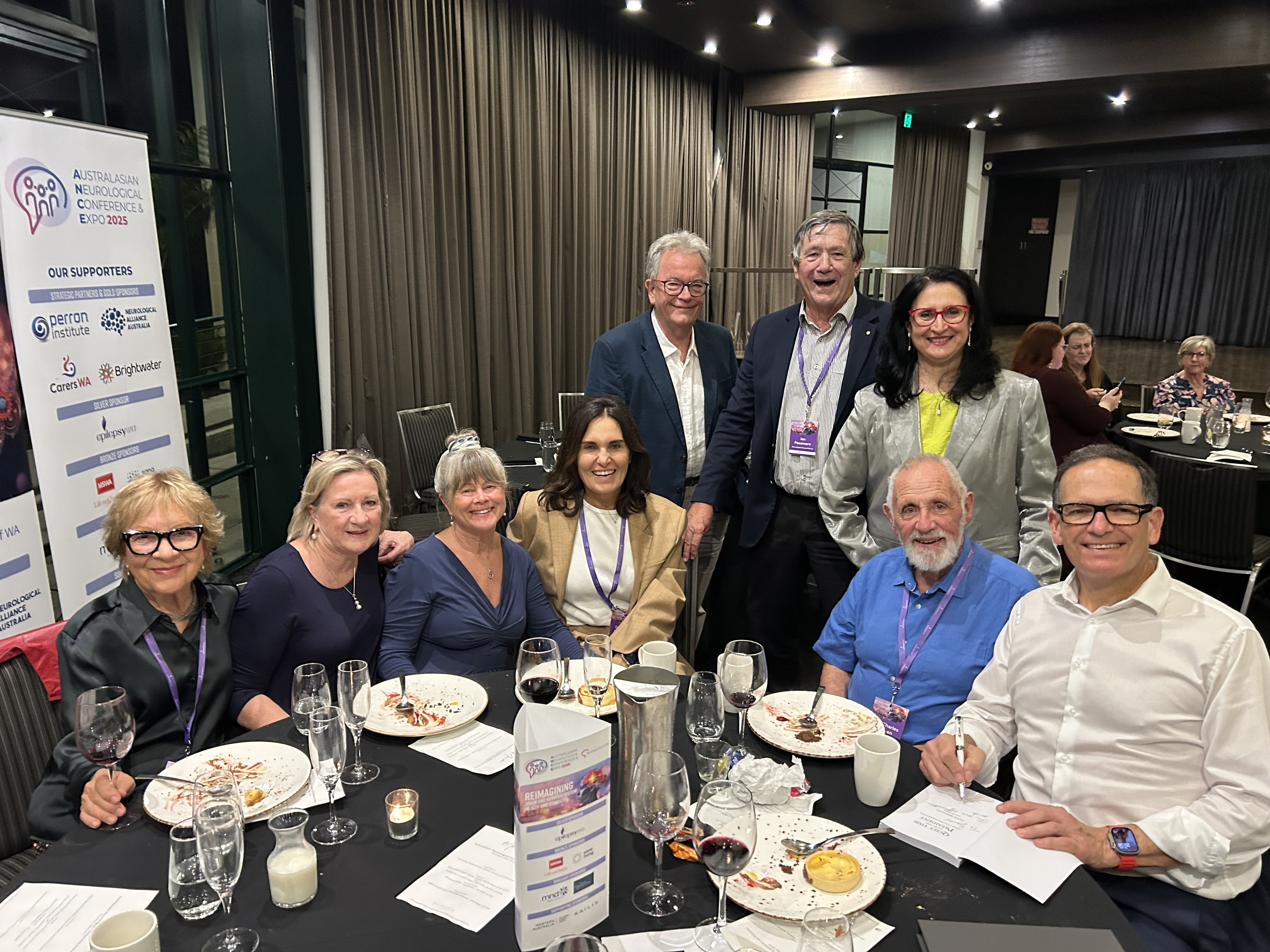
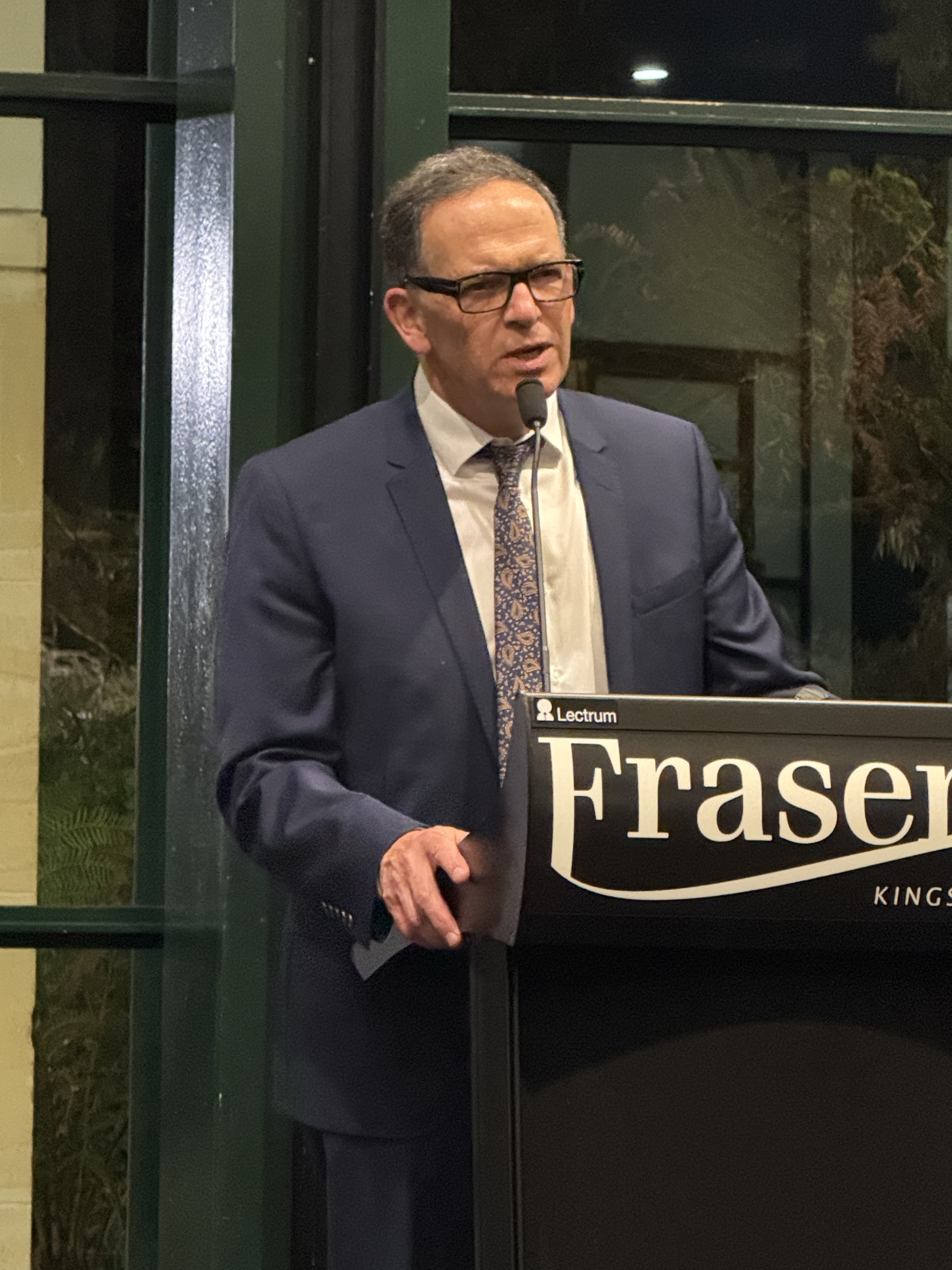
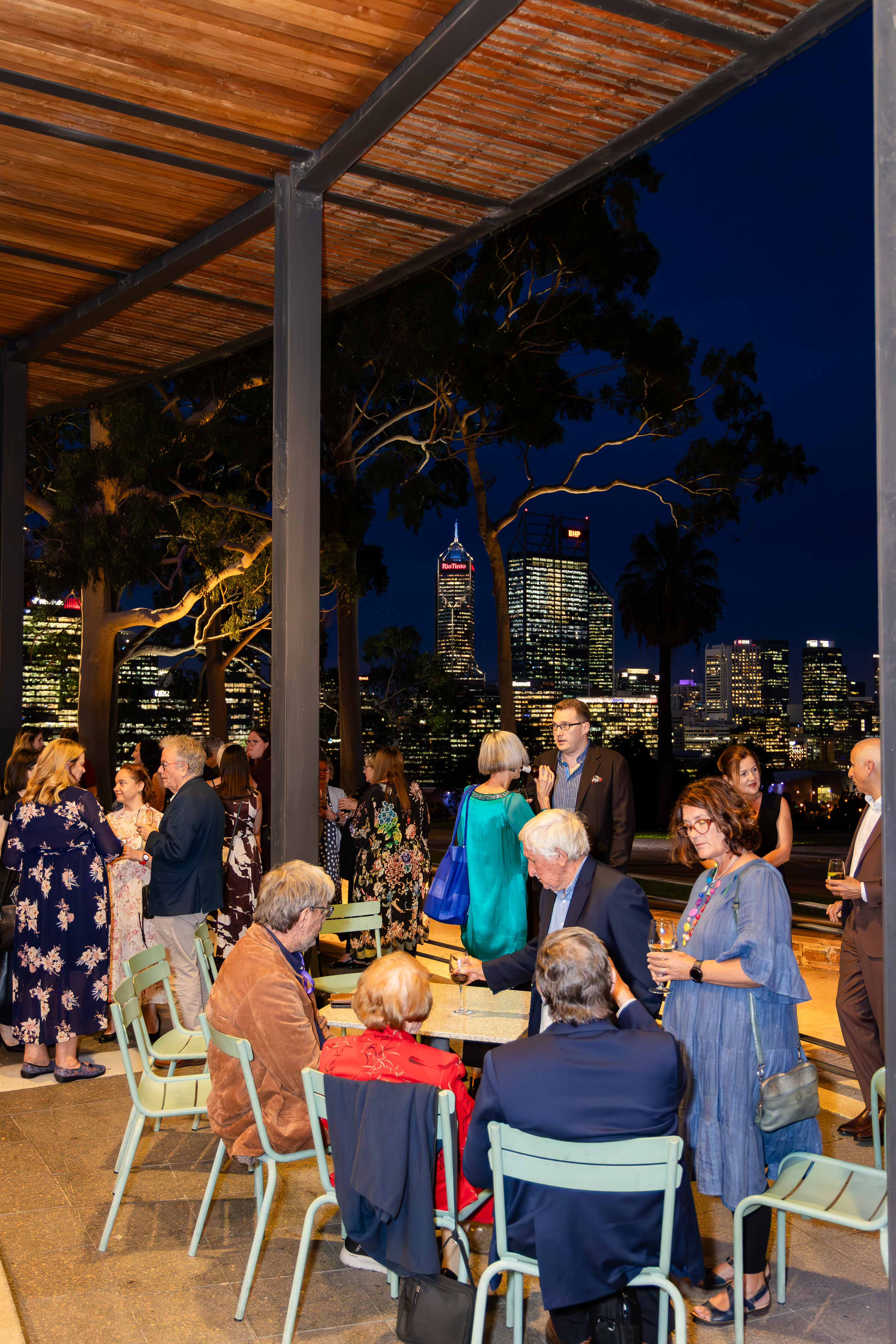
ANCE day two
Day two of the conference commenced with a keynote address from Dr Shirley Bowen, Director General of WA Health. Dr Bowen drew on her extensive leadership across both public and private health sectors to highlight the importance of compassionate, person-centred care and the need for continued innovation in delivering high-quality health services to all Western Australians
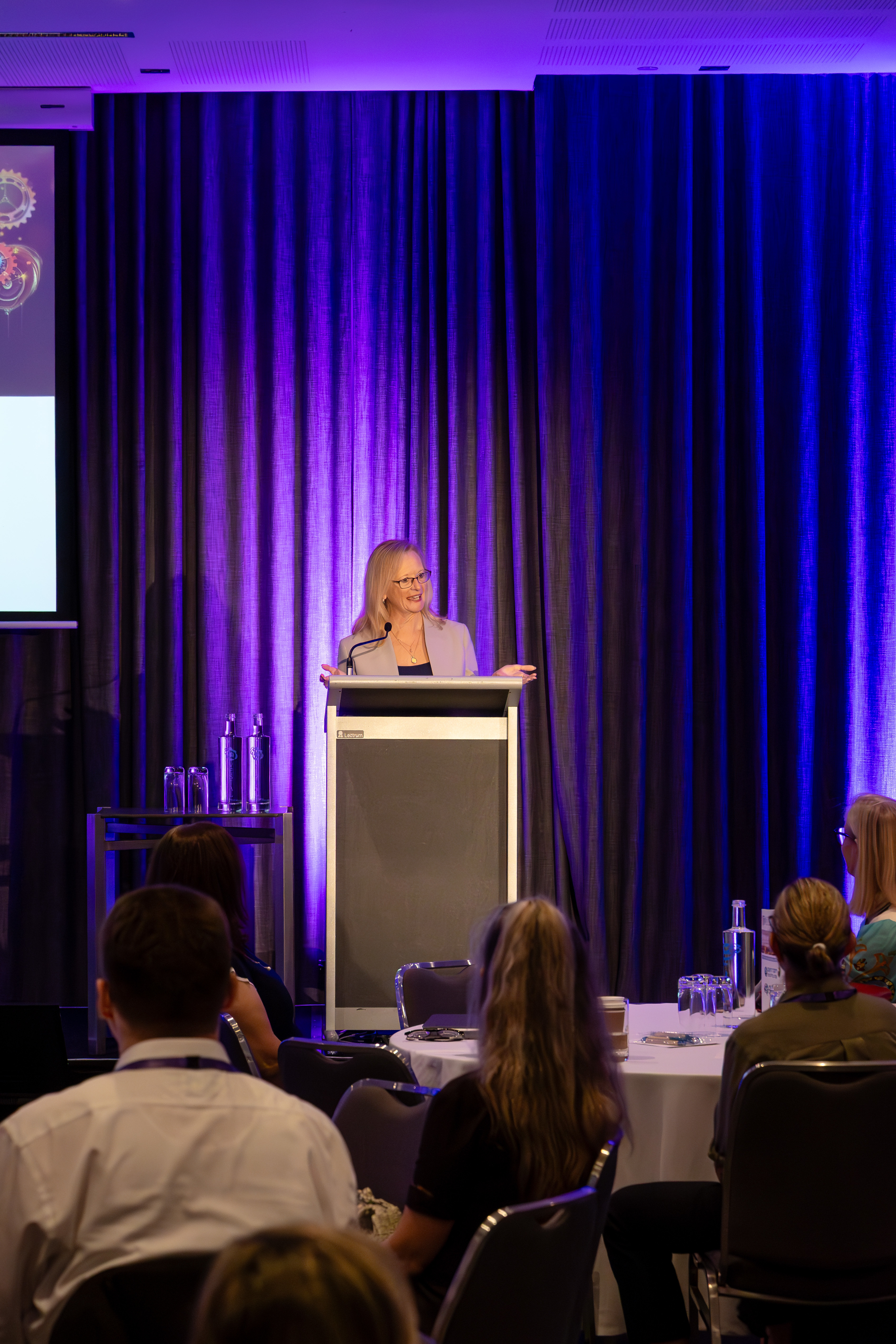
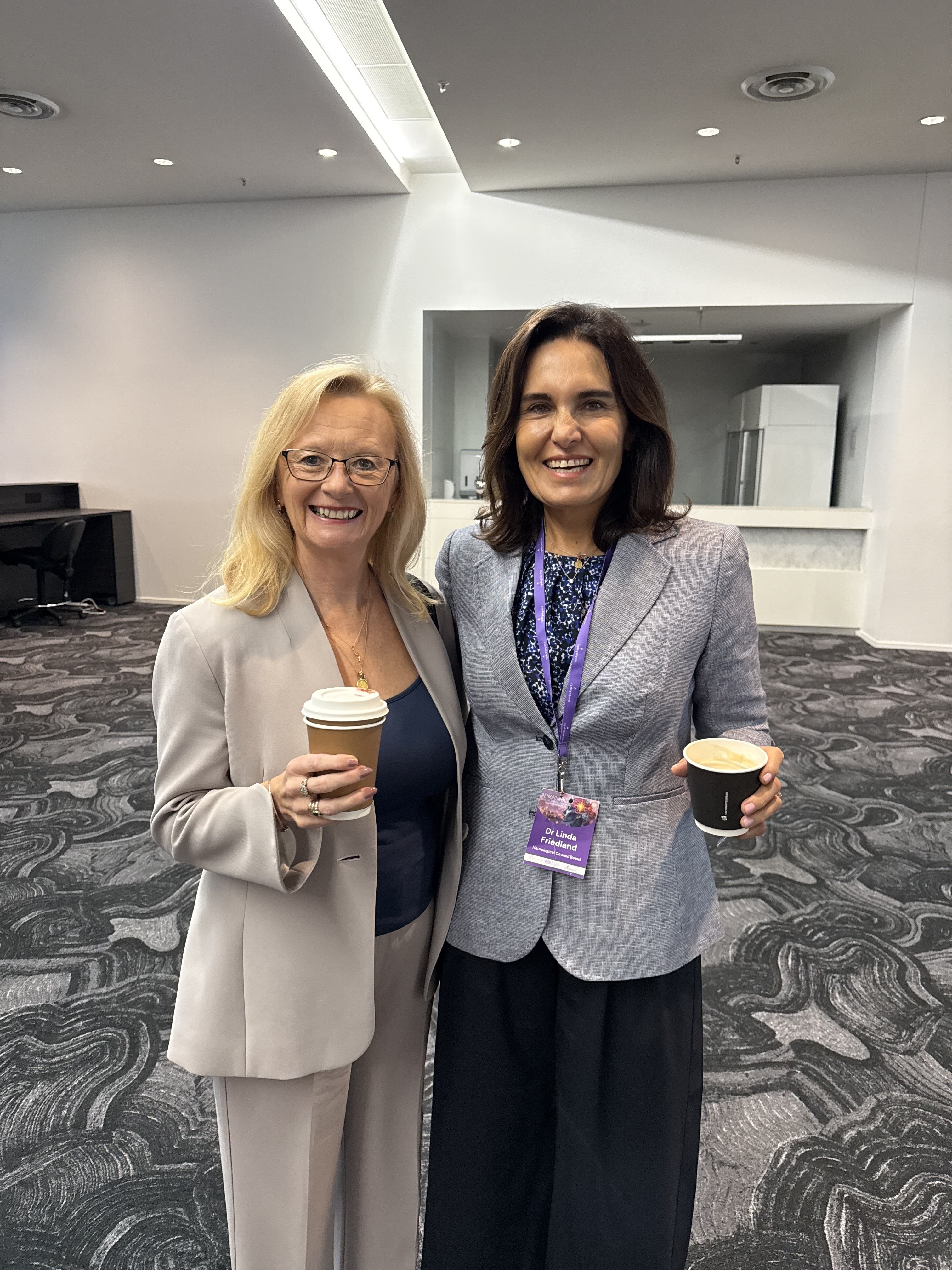
Professor Merrilee Needham and Dr Darshan Ghia delivered insightful presentations on the evolving landscape of neurological care. Professor Needham explored the impact of unmet needs for patients with neuromuscular disorders. Drawing on her extensive clinical and research experience as leader of the Myositis Research Group, and her pioneering work establishing a national biobank and registry to support patients with myositis and related conditions, she pointed out the critical role of improving the patient journey through diagnosis, treatment and long-term management, of neurological conditions.

Dr Ghia, a consultant neurologist and inaugural head of the stroke unit at Fiona Stanley Hospital, focused on the burden, treatment, and prevention of stroke and other brain disorders, including epilepsy. With specialised training in stroke and interventional neuroradiology and active involvement in major national committees and research trials, Dr Ghia provided a comprehensive overview of advances in stroke care, including the role of the WA Telestroke Network in improving access and outcomes for patients across the state. Dr Ghia underlined the statement that stroke is a public health priority, and that there is a need for ongoing research in this area.
After morning tea, Tina Williams, CEO of Volunteering WA, spoke about Recognizing the Volunteer Workforce's Critical Contribution to Neurological Health & Disability Care. With a strong background in leadership across the not-for-profit health and community sectors, Tina brought valuable insights from her experience as CEO, where she has championed partnerships for sector growth. Her previous roles at the Women and Infants Research Foundation and Carers WA, as well as her leadership in convening the Volunteer Community Reference Group following the 2017 state election, underscore her ongoing commitment to elevating the vital role of volunteers in supporting health and disability services across Western Australia
During lunch there was an opportunity to network with exhibitors and view the poster gallery and NeuroNouveau art exhibition.
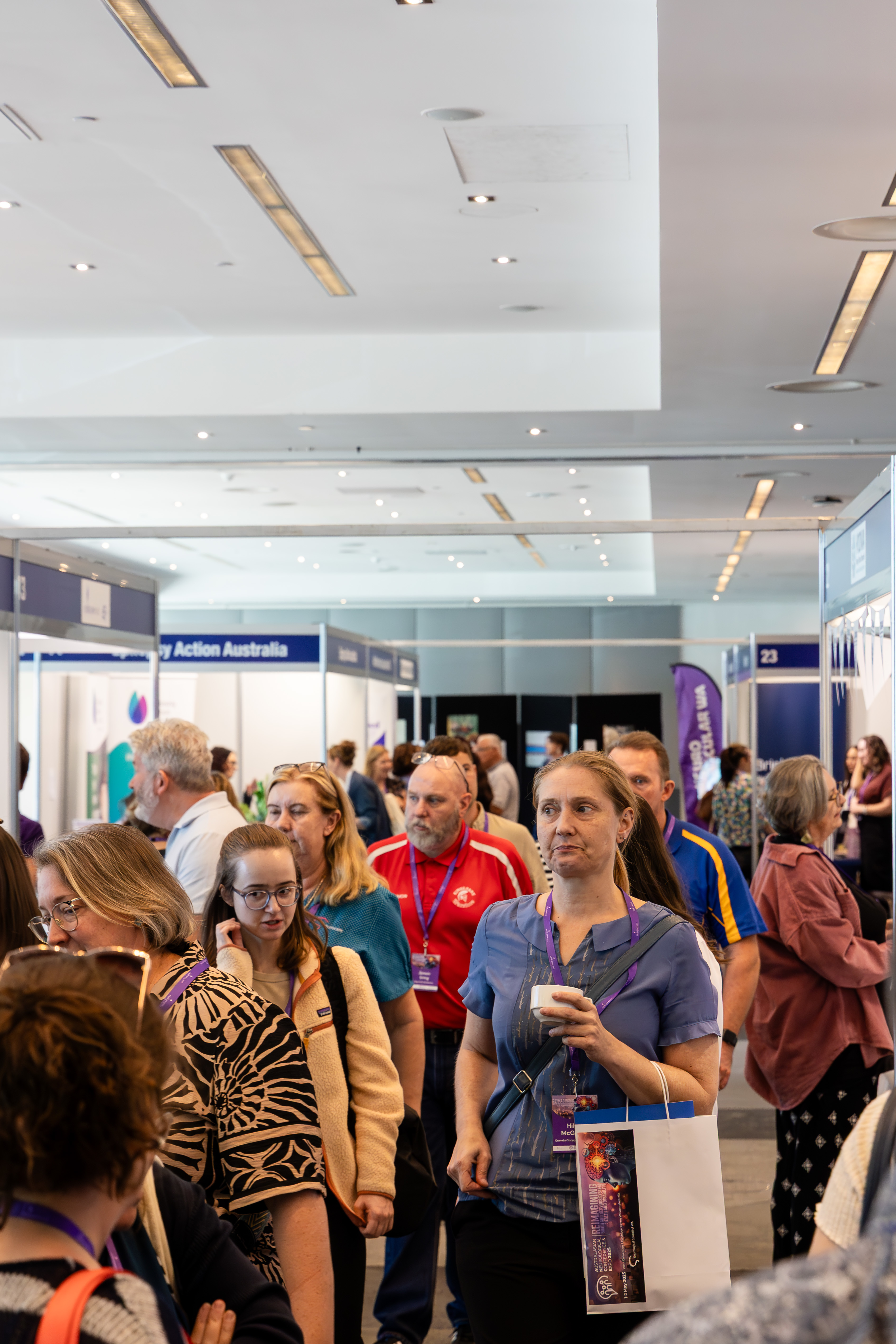
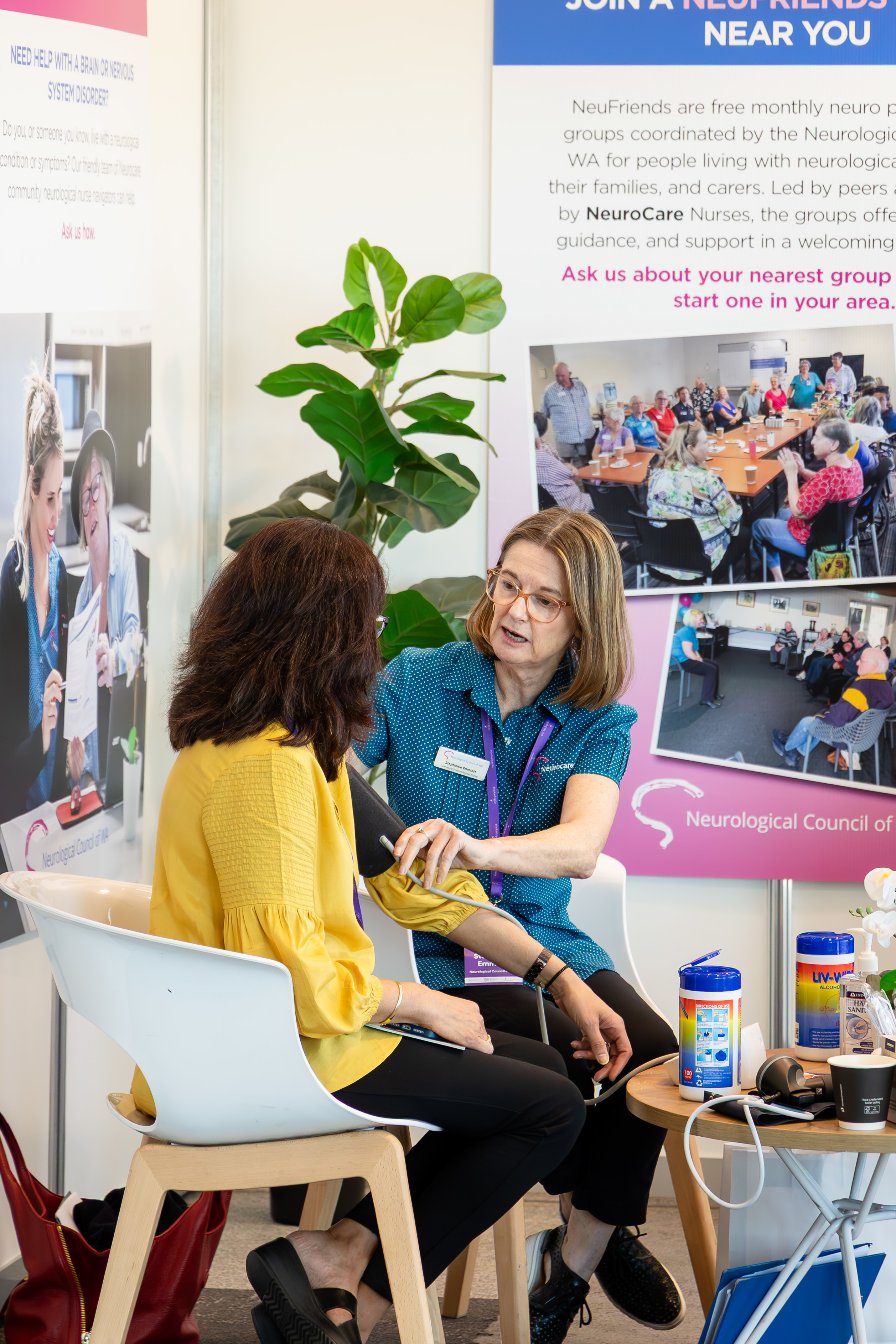
After lunch breakout sessions commenced. Dr. Kristina Elvidge shed light on the state of childhood dementia in Australia, emphasizing the urgent need for systemic change and the critical role of research, evidence, and collaboration in advancing treatment and improving outcomes for affected children.
Emeritus Professor Alan Harvey delivered a compelling presentation on the profound impact of music in health and therapy. As one of Australia's leading neuroscience researchers, he integrates his expertise in cell and tissue transplantation, gene therapy, and pharmacotherapy with a deep passion for music. In his talk, he explored how music, beyond its cultural significance, plays a vital role in neurological and psychological well-being. Drawing from his book Music, Evolution, and the Harmony of Souls, Professor Harvey discussed the evolutionary importance of music as a driver of cooperative behavior and its therapeutic applications in conditions such as Parkinson’s disease, stroke, and developmental disorders like autism . His insights underscore the need for public policy to recognize music as essential for psychological health and social well-being.
Ms. Sabena Lund led a practical and memorable workshop titled My Future Care – Are You Good to Go? Which was informed by her background in counselling and community education to guide participants through key aspects of future planning, including wills, enduring powers, guardianship, and administration, empowering them to live fully and with peace of mind in the final stage of life.
Dr. Alex Tang leads the Healthy Brain Ageing and Repair Lab at UWA and the Perron Institute. His research focuses on understanding how ageing affects critical brain functions like learning and memory, and on exploring cellular mechanisms underlying age-related neurological disorders such as stroke. The lab aims to develop novel interventions to promote healthy brain ageing and improve quality of life in older adults, through non-invasive brain stimulation. Dr Tang’s work explores the cellular basis of neurological conditions like stroke, aiming to develop new interventions that support brain health across the lifespan.
Later in the afternoon Melanie Kiely, CEO MSWA, led a panel discussion with Dr Dev Nathani, Professor Jennifer Rodger and Rohan Greenland titled Improving outcomes through research – The importance of translation. This insightful conversation emphasised the need for ongoing research across all areas of neurology and how to translate progress and findings to the community to improve patient outcomes.
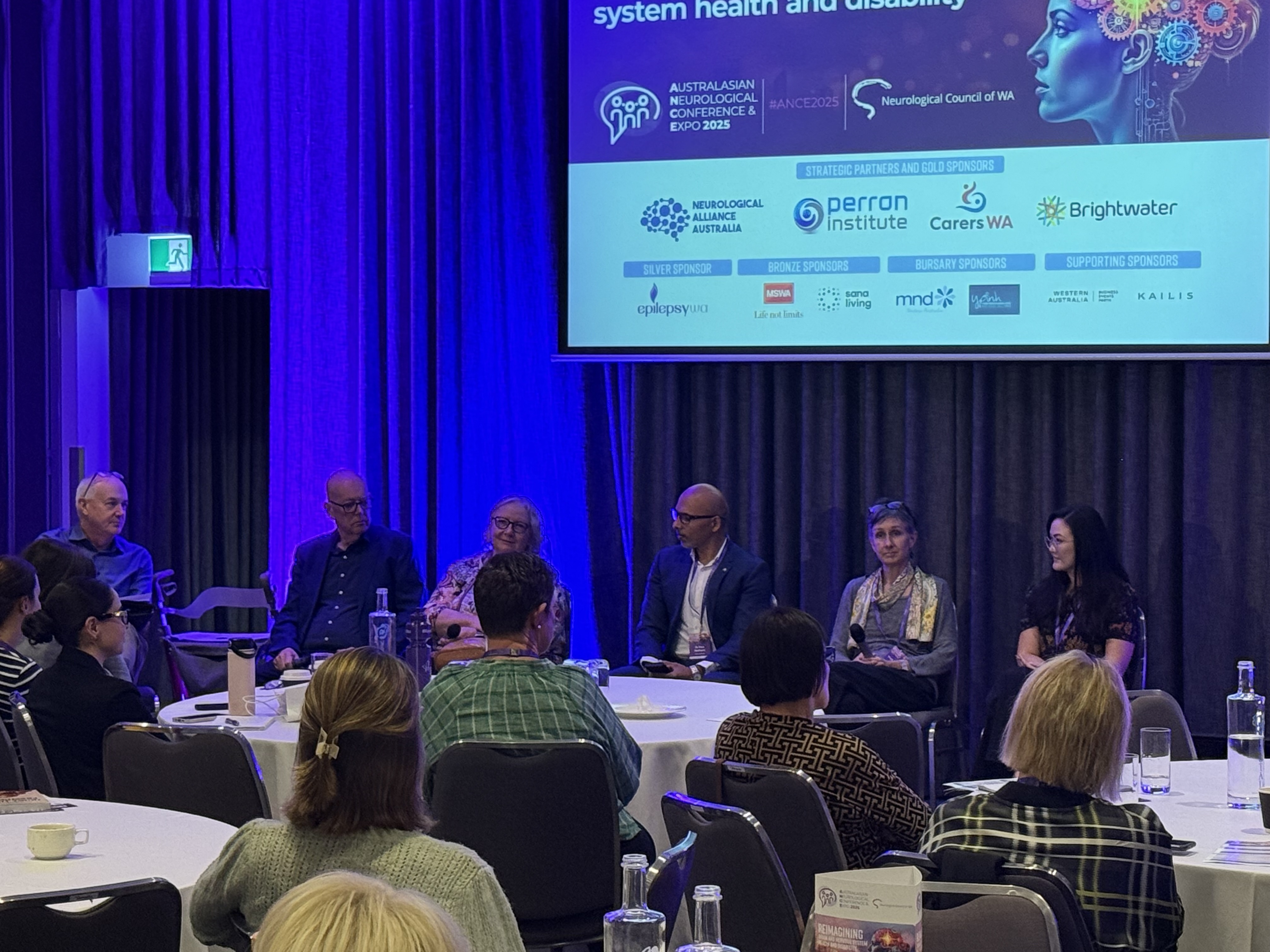
The Closing of the conference was led by our fabulous MC Karen Tighe, who is an Encephalitis Ambassador and former ABC sports broadcaster. The beautiful Kalis Jewellery door prize was drawn, and awarded to one of our delegates.
Thank you to our strategic partners and sponsors: Neurological Alliance Australia, The Perron Institute for Neurological Translational Science, Carers WA, Brightwater Care Group, Epilepsy WA, MSWA, Sana Living, Business Events Perth and Kailis Jewlery, Motor Neurons Disease WA, and Young People in Nursing Homes National Alliance.
We would like to extend our heartfelt thanks to every delegate, speaker, exhibitor, sponsor, and volunteer who helped bring this event to life. Over the past two days, we’ve seen what’s possible when clinical expertise, lived experience, innovative research, and community insight come together in one place. The conversations started here will continue to shape the future of neurological care across Australasia.

Whether you attended to share, to learn, or to connect—you’ve helped make ANCE 2025 a landmark event. Thank you for being part of this growing and vital community.

